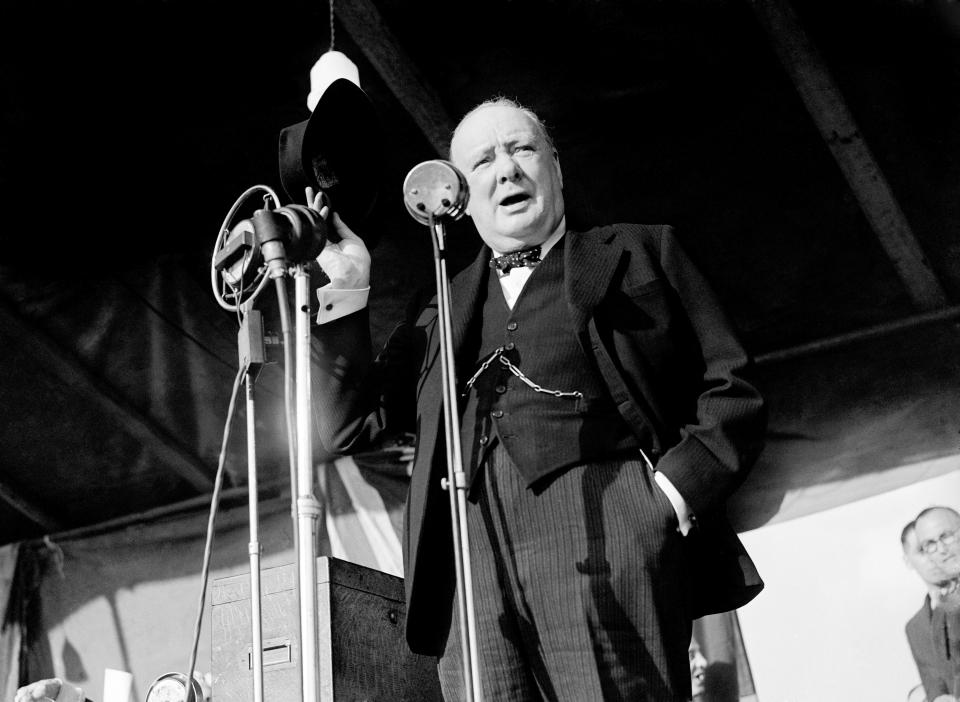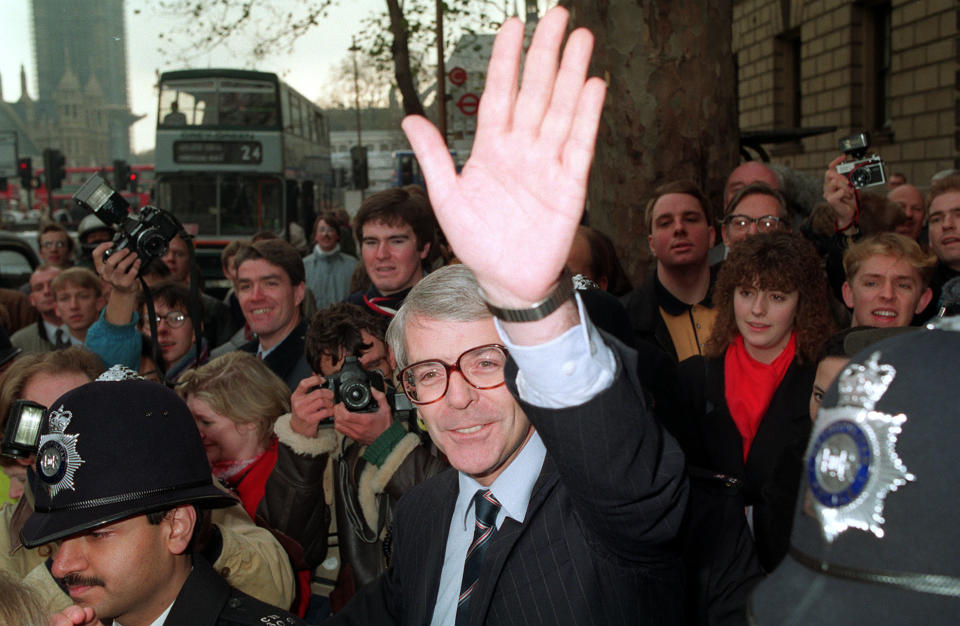What happened to the other nine prime ministers elected by their party (and not the public)?
As the Tory leadership ballot comes to a close, the country is poised to find out if frontrunner Boris Johnson or Foreign Secretary Jeremy Hunt will move into Number 10.
Here, we look at the history of prime ministers who have been anointed by their party rather than being elected by the public, and considers the potential fate that could await them at the polls.
Sir Winston Churchill

In May 1940 he was chosen to become prime minister, replacing Neville Chamberlain after his resignation and leading the newly-formed national government.
After losing the 1945 general election to Labour’s Clement Attlee, Churchill was elected for a second term as prime minister in 1951. He was forced to resign because of poor health in 1955.
Sir Anthony Eden
He became prime minister after the resignation of Churchill. He immediately called a general election and increased the Conservatives’ majority from 17 to 60.
However, his term in office lasted just two years because of his controversial handling of the Suez crisis – leaving his reputation in tatters. He resigned in 1957.
Harold Macmillan
Taking over from Eden, he began his premiership by telling the Queen that he had little hope his government would survive in office for more than six weeks when he became prime minister. The Tories increased their majority in the October 1959 general election.
BORIS JOHNSON IN NUMBER 10: MORE FROM YAHOO UK
Johnson is a 'mini-Trump' who will be a disaster, warn Euro newspapers
Boris Johnson: ‘can-do spirit’ can solve problem of Irish border
Michael Gove: Why I’ve changed my mind about Boris Johnson
Boris Johnson says ‘three years under Theresa May will seem like a bad dream’ once he’s Prime Minister
Boris Johnson profile: Eccentric, unmissable... and now the man in the top job
The Conservative party was demoralised after the Suez crisis, but Macmillan turned the tables and eventually claimed that the British people had “never had it so good”. He resigned in 1963.
Sir Alec Douglas-Home
His time in Number 10 was short lived – spending just 363 days in office. The aristocratic peer was a member of the House of Lords when the Conservatives chose him to replace Macmillan.

He renounced his peerage and won a by-election for the safe Kinross and Perthshire West Commons seat, but lost the general election in 1964 to Labour’s Harold Wilson who clinched a four-seat majority.
James Callaghan
He took over from Mr Wilson in 1976, after the latter resigned two years into his second term in office.
At a time of heavy industrial unrest Callaghan took the country through the Winter of Discontent before going to the polls in 1979.
He was heavily defeated by Margaret Thatcher and Labour were out of power for the following 18 years.
Sir John Major
He was chosen as Tory leader in November 1990 after Margaret Thatcher’s dramatic fall from power, resulting in her resignation.

Despite calls for an immediate election from Labour leader Neil Kinnock, he took the UK into the Gulf War and survived an IRA assassination attempt before going to the polls in April 1992.
He won and spent a further five years in power before Tony Blair’s 1997 New Labour landslide victory.
Gordon Brown
He moved into Number 10 in 2007 after Mr Blair resigned amid continuing criticism of his decision to back the American-led invasion of Iraq.

With his tenure in office marred by the global financial crisis, Mr Brown resigned in 2010 after the general election resulted in a hung parliament.
Theresa May
She became Britain’s second female prime minister after David Cameron resigned in the wake of the 2016 Brexit vote. A snap general election in 2017 saw the Tories lose their majority and a confidence and supply deal reached with the Democratic Unionist Party.
In June Mrs May bowed to pressure and announced her resignation as leader of the Conservatives after failing to garner the support of her own MPs to deliver Brexit.
In figures:
Anointed prime ministers who won an election after going to the polls – three
Anointed prime ministers who have lost a general election after going to the polls – four
Mrs May – with no overall majority ceases to count in the tally
So does an anointed prime minister tend not to do so well?
Speaking to PA, politics professor John Curtice from Strathclyde University said: “Very often a prime minister who inherits the job in midterm is inheriting the fag end of a term.
“That was certainly true of Callaghan whose government then hit all sorts of trouble. I think Douglas-Home – that is one of the reasons Macmillan went because the polls were way behind.
“One of the reasons Theresa May has gone is because of the position of the Conservative Party in the opinion polls, which Boris is going to have to turn around.

“Major succeeded, he did very well in 1992 – so I guess what I am arguing is that you cannot suggest that becoming prime minister by being elected necessarily imbues you with some magical powers.
“Sure, yes, those are probably the more favourable circumstances to which to come to office, because then you do so replacing the previous government and facing presumably for some time what is an unfavourable opposition.”
But, he added: “No prime minister has inherited a party as low in the polls as either Boris Johnson or Jeremy Hunt are going to do.
“They are inheriting what at the moment at least is a very sticky, very volatile wicket.”

 Yahoo News
Yahoo News 
